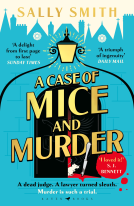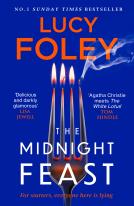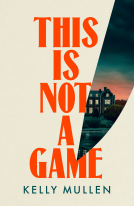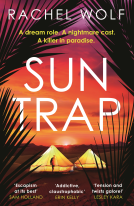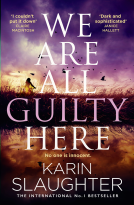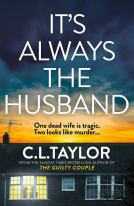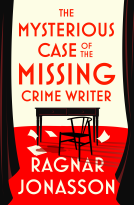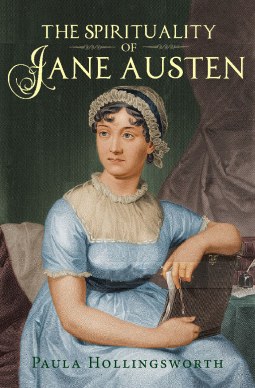
The Spirituality of Jane Austen
by Paula Hollingsworth
This title was previously available on NetGalley and is now archived.
Send NetGalley books directly to your Kindle or Kindle app
1
To read on a Kindle or Kindle app, please add kindle@netgalley.com as an approved email address to receive files in your Amazon account. Click here for step-by-step instructions.
2
Also find your Kindle email address within your Amazon account, and enter it here.
Pub Date 24 Mar 2017 | Archive Date 27 Oct 2017
Lion Hudson Plc | Lion Books
Description
2017 marks the 200th anniversary of the death of Jane Austen, whose completed novels have never been out of print.
In this celebratory book, Paula Hollingsworth explores Jane Austen's gentle but strong faith and the effect it had both on her life and her writing.
Drawing on Jane’s life story, her letters, her friendships, her books, and the characters portrayed, Paula shows the depth of Jane Austin’s spirituality.
A must read for any Jane Austen or literary fan who would like to know more about this incredible author.
Available Editions
| EDITION | Paperback |
| ISBN | 9780745968605 |
| PRICE | £9.99 (GBP) |
| PAGES | 240 |
Featured Reviews
A nice introduction to Austen scholarship for someone just starting out and would like to dip their toes in the water. For those more experienced, this book is too light on research and it's conclusions about Austen's work are very general (wherein basic Anglican religious principles stand in for a deeper look into spirituality) and not terribly new.
 Janet P, Reviewer
Janet P, Reviewer
This book is a combination biography and critical analysis of Austen's writings, all done from the viewpoint of looking at how her Christian beliefs came out in her work.
If we're familiar with her work, we know about the "odious Mr. Collins," a man who is not a good example of the Christian life. But do we think about Edward Farrows who wants to be a priest to "do a bit of good." It's far too easy to think Mr.Collins is what Austen thinks, but, looking at her life, Farrows is closer to the truth.
Clergymen abound in Austen's family, including her father and two brothers. She grew up in a loving family. She was devout herself and her books all have strong moral messages. Nor does she hesitate to skewer people like Mr. Collins who join the church for the wrong reasons.
I loved how this book joined Austen's life to the themes and plots in her books. I loved that it showed the strong Christian character behind them that is, I think, one of the reasons they remain so popular.
Nor does Hollingsworth ignore the recent Austen revival. In her last chapter she looks at Austen's legacy and comes to grips with many of the modern adaptations and retellings of her books. While she does not cover them all, she does not back away from criticism of books that do great disservice to Austen.
I loved that this book brought out characteristics in Austen I recognized but hadn't identified. Now I'm ready to spend my spring rereading the ones I haven't read in awhile.
 Leanne M, Librarian
Leanne M, Librarian
Very interesting analysis of the life and works of Jane Austen through the lens of faith. Thoroughly researched and well written exploration of the role faith played in Austen's daily life and how that showed up in her work.
 Reviewer 384000
Reviewer 384000
I wholeheartedly recommend this book.
Even though I like Jane Austen and would consider myself a fan, I have to admit that I never read the books except for Northanger Abbey, but watched the movies instead. And I mostly liked it because of the love stories and the dresses. I wouldn't have thought about the stories as containing lots of spiritual things. So I was very intrigued when I found this book.
Paula Hollingsworth has a clear and accessible style of writing. Her arguments seem to be well proven and convincing. I had no trouble understanding what she's talking about even though I had not read most of the books.
After a short biography of Jane Austen, she focuses on her Juvenilia, her early and late novels and explains what they can tell us about Jane's spirituality and also gives a lot of information on the role of religion in that time and place. I knew next to nothing about that subject and I found it very interesting to learn about Evangelicals and Anglicans at the beginning of the 19th century. I even read all the annotations at the end of the book where I found more interesting explanations. In the end, Hollingsworth also talks about the movie adaptions of the novels and how most of them completely miss out on the spiritual undertones and themes.
Even though "exciting" might not be the first thing that comes to mind for a non-fictional book about literature, I think that it fits the book really well. I really enjoyed reading it and it has instilled in me the desire to finally read the rest of Jane Austen's novels as well as James Fordyce's Sermons to Young Women. And when I read Jane's other novels, I will keep the spiritual themes in mind as well instead of just focusing on the love story.
I would recommend this book to any fan of Jane Austen, no matter if you've read all of her novels or if you haven't read them yet but are planning to do so in the future.
Disclaimer: I received a free copy via Netgalley in exchange for an honest review.
 Margaret F, Reviewer
Margaret F, Reviewer
Jane Austen has long been one of my favourite authors, so when I saw The Spirituality of Jane Austen by Paula Hollingsworth on NetGalley I was keen to read it. It’s a combination of a biography, which complements other biographies that I’ve read, and an analysis of Jane Austen’s works from the point of how they reveal her spirituality.
‘Spirituality‘, in Jane Austen’s day was used in the sense of the word ‘religious‘, but used in a narrower sense than we would today. It would have meant ‘Christian‘ and in particular almost exclusively ‘Protestant Christianity‘. In the Austen family that would mean the beliefs and practices of 18th century Anglicanism – ‘a faith that was tolerant and pragmatic, focusing on self-improvement and right behaviour, with a belief in change that comes not so much from miracles but through self-reflection and inner growth.’
With this definition in mind Paula Hollingsworth then considers Jane Austen’s letters, her early writings and novels, focusing on how they reveal Jane’s spirituality implicitly rather than explicitly, seeing parallels between her life and her writings. I enjoyed this way of looking at her novels in particular.
I think the last chapter in which Paula Hollingsworth considers modern adaptations and dramatisations of Jane Austen’s books is very interesting. Whilst they have brought her work to a wider audience it has meant that character development has been lost, or the values of the times in which the novels are set have been changed to make the story more acceptable to a modern audience.
And given that Jane Austen disliked Bath when she lived there, Paula Hollingsworth believes she would be disappointed by the focus on some of the activities and merchandise rather than on her books. She also considers the recent Austen Project books in which modern authors set the novels in the present day and the problems they have in making them credible to modern readers.
She describes the many ways people today can enjoy Jane Austen’s work, such as watching screen adaptations, dancing at a Regency Ball, reading books about Jane Austen and her world, dressing in Regency costume and parading through Bath and other events, but considers that the best way is to read the novels themselves and to read them slowly. I agree. I really enjoyed reading this book and it has made me want to re-read the novels, particularly those I haven’t re-read recently.
There are comprehensive notes on the chapters, an appendix of Jane Austen’s prayers and a select bibliography.
My copy is an ARC I received from the publishers, Lion Books via NetGalley. The paperback (240 pages) will be published on 24 March 2017.
Paula Hollingsworth piqued my interest with this title. I have read and loved Austen for a large part of my life but didn’t perceive a Christian view in them. She outlines her task in her study of the spirituality of Jane Austen as follows:
“I do not venture to speak of her religious principles: that is a subject on which she herself was more inclined to think and act than to talk, and I shall imitate her reserve; satisfied to have shown how much of Christian love and humility abounded in her heart, without presuming to lay bare the roots whence those graces grew.”
This is elegantly achieved with a systematic, and intense, study of both Austen’s life and her works. Much of the argument is built on the biographical knowledge of the author drawn from those who knew her best and from her own letters. The way in which Austen loved both friends and family reflects her commitment to living out her faith. Each novel she wrote, including those unfinished, is dissected for religion threads as not one is Christian focused rather, in commending good behaviour and highlighting bad, Austen suggests the way in which we should all live.
“What Catherine is criticized for is reading without thought or reflection, reading with too much sensibility and not enough sense, and imposing the values of such novels on her life and the lives of those around her. She needs to learn to read with more detachment and criticism, and to balance the reading of such novels with more serious books, especially on history. For, in life and in literature, imagination must be ruled by judgment; and other people’s natures are to be critiqued with a grounded realism.”
“So the biblical story of death and resurrection is again mirrored in Persuasion, all the more strongly, for as the loss is greater so the hope and joy of new life at the end of the novel is greater…”
Being surrounded by and raised by clergy, Austen creates her commentary on the responsibilities of the church and their representatives through her novels.
““How should you have liked making sermons?” Wickham’s response is about the duty and exertion of writing sermons, and about the quiet and retirement of the life of the clergy, but the implication of Elizabeth’s question is that sermons give a moral lead to others, something she recognizes Wickham is incapable of doing. In terms of our three criteria of spirituality, Pride and Prejudice scores highly as a spiritual book. Jane Austen has a lot to say about values as she stresses the importance of inner character as opposed to outward appearance. The virtues that are particularly commended throughout the book are civility, responsibility, generosity, and goodness. An important part of responsibility is moral influence. Those in a position to influence others –such as Darcy as a landowner, Mr Collins as a clergyman, Lady Catherine as a patron, and Mr and Mrs Bennet as parents –should recognize their responsibility to others and be an example by their words and actions, though not all of them manage to do it.”
The following three quotes indicate how her brother Henry, a biographer who studied her, David Cecil, and a contemporary reviewer all find a tale of faith and an encouragement to the Christian life in her work and I think they say it best:
“Henry believed that Jane was seeking to reflect her Christian faith in her novels, but that she did not believe that a didactic approach would be either popular or beneficial.”
“For example, David Cecil, Professor of English Literature at the University of Oxford from 1948 to 1970, wrote in A Portrait of Jane Austen, published in 1978: Jane Austen’s religion, so her biographer discovers as he studies her, is an element in her life of the highest significance and importance.”
“Miss Austen has the merit (in our judgement most essential) of being evidently a Christian writer: a merit which is much enhanced, both on the score of good taste, and of practical utility, by her religion not being at all obtrusive… The moral lessons… spring incidentally from the circumstances of the story; they are not forced upon the reader.” – Richard Whately of Quarterly Review
The author sums her journey up with the following:
“Jane’s spirituality was the outworking of the quiet and measured Anglican faith of her father, which is expressed implicitly rather than explicitly in her novels.”
I believe, from what I discovered through this book, Jane Austen’s spirituality exceeds beyond the faith of her father but rather it comes from her relationship, developed from that foundation, with God and her own walk in faith. She endured many trials but endured each with a commended exhibition of Christian virtues. Her wilderness years refined her. My personal favourite, Persuasion, is born of the years after her wilderness and during her illness. I wonder if part of my connection to the lead character Anne is owing to her author’s understanding of human suffering and pain. I enjoyed The Spirituality of Jane Austen thoroughly even though in parts it is a little dry and give it an en-JOY-ment rating of three. It is definitely for the Austen fanatic.
My favourite element of the whole book was finding the prayers written by Austen at the end. Beautifully crafted and so on point for today.
 Kimberly O, Educator
Kimberly O, Educator
I was excited to read this exploration of Jane Austen. I had never considered the role her spirituality played in her life and how it affected her writing. Paula Hollingsworth has written a very accessible book. She lays out her ideas clearly and supports her views with a wide variety of sources. The book has a straight forward and sensible organization, making it easy to use for reference. The book is a nice mix of biography and analysis of Jane Austen's writing. Because the analysis of her novels is so thorough, plot points will be spoiled for anyone who hasn't read them. I particularly liked the extensive endnotes and partial bibliography Ms. Hollingsworth included. The appendix of prayers written by Jane Austen were illuminating and are something I will revisit.
I will definitely use this book as a reference next time I re-read an Austen novel. I think it will add considerable depth to the experience.
 Susan M, Reviewer
Susan M, Reviewer
The book covers the topic of faith in Jane Austen's life and her works with a nice and easy writing style. A book I would recommend to fans and non-fans alike, as it has a good mixture of biography with the analysis of her books.
 Sarah O, Reviewer
Sarah O, Reviewer
I really liked this biography of Jane Austen. I loved that it explored each of her novels and related it to what she experienced or what was currently going on in her life at the time she wrote them. I thought exploring the role Religion and Spirituality played in her life was a very facinating approach. There are so many different clergymen characters in her novels and I thought it was refreshing to explore the topic without throwing in our modern bias. Hollingsworth does a good job of showing how much religion played in her life without making this preachy at all. Jane certainly didn't preach either but she did promote moral, christian doctrines and practices.
I think most of the biographical facts are things I have picked up over the years as a fan of Jane Austen so her life story wasn't new to me. I did however really enjoy the focus and insights that were shared in this biography.
 Carmen C, Reviewer
Carmen C, Reviewer
A dispetto del titolo, La spiritualità di Jane Austen, che in un primo tempo mi aveva portato a dubitare del fatto di volerlo leggere, il bel saggio di Paula Hollingsworth non si focalizza solo sul tema principale, ma ci regala una trattazione della vita della scrittrice inglese a 360°, includendo anche più informazioni dei Ricordi di James Edward Austen-Leigh.
Traducendo le parole dell'autrice, "Il termine spirituale è spesso usata oggi laddove la parola religioso sarebbe stata usata ai tempi di Jane Austen [...] per Jane Austen, la parola religioso avrebbe significato cristiano" e " religioso sarebbe stato sinonimo di credenze e riti degli anglicani praticanti appartenenti alla Chiesa d'Inghilterra".
Si tratta quindi di un saggio che, raccontandoci la vita di una delle più conosciute scrittrici di tutti i tempi, ci rende chiaro quelli che per lei erano i temi più cari: la casa, la chiesa e la comunità.
Jane Austen nacque in una famiglia amorevole e di larghe vedute, supportiva, capace di creare un ambiente molto sereno e piacevole, nonché molto legata alla religiosità e alla chiesa, vista l'occupazione non solo del capofamiglia, reverendo, ma anche di altri parenti.
Viene a dipingersi un quadro molto delicato di quella che doveva essere Jane Austen ragazzina e poi giovane donna, cresciuta credendo fermamente nella giustizia, nella costanza e nella capacità di ognuno di migliorarsi.
Molto toccante la parte riguardante il suo trasferimento a Bath. Oltre a fornire interessantissime informazioni sulla città, l'autrice riesce a farci comprendere quanto dové essere penoso e triste per la scrittrice l'allontanamento non solo dalla casa in cui era cresciuta, ma dalla comunità di cui si sentiva parte, e da tutto ciò che aveva costituito sino ad allora la sua vita e la sua quotidianità.
Tre capitoli sono dedicati all'analisi dei romanzi completi di Jane Austen, naturalmente con un'attenzione particolare alla religiosità. C'è da dire che, pur avendoli letti e riletti innumerevoli volte, sono riuscita ancora ad imparare qualcosa.
Che in Orgoglio e pregiudizio, ad esempio, oltre al noto tema del contrasto tra essere e apparenza, vi sono quelli di morte e resurrezione (interiore) e perdita e redenzione;
che i personaggi di Mr Collins e Lady Catherine, di sicuro non un esempio di ecclesiastico e di patronessa, nascevano dalla profonda consapevolezza di Jane Austen di quanto potere e influenza avessero le persone nella loro posizione, e di quanto male potessero arrecare alla comunità.
Che in Northanger Abbey l'autrice non polemizzava contro i romanzi gotici, bensì contro il fatto che li si leggesse senza riflettere, né comprendere la differenza tra finzione e realtà.
Che in Mansfield Park, la dimora dei Bertram e i suoi abitanti possono essere visti come un microcosmo, rappresentanti la gentry inglese dei tempi di Jane Austen, in declino, soprattutto morale, salvati da Fanny, grazie alla virtù della costanza.
La stessa costanza mostrata da Anne in Persuasione, che non smette di amare nonostante si sia piegata al volere dei suoi familiari, e che, nel suo penoso trasferimento a Bath, è probabilmente il personaggio più vicino a Jane Austen, e più lontano da Catherine Morland, che nella stessa città arriva ragazzina, con tutto l'entusiasmo della sua età e l'anticipazione di nuove scoperte.
Paula Hollingsworth inoltre pone anche l'accento su una interessante questione a cui probabilmente non si pensa spesso, e cioè sul fatto che le trasposizioni su grande e piccolo schermo dei romanzi austeniani, nonché i vari prequel, sequel e variation, allontanandosi dal messaggio originale dell'autrice, così attenta alla moralità e soprattutto alla crescita e alla profonda trasformazione interiore dei suoi personaggi, abbiano contribuito a dare alle opere di Jane Austen la fama di romanzi d'amore e nulla più.
Il saggio si chiude con alcune preghiere composte dalla stessa Jane Austen. L'impressione che ne ho tratto è che la mano che le ha scritte appartenesse ad una persona estremamente sensibile e veramente amabile.
--
La copertina: molto bella.
E' costituita semplicemente dall'unico ritratto che disponiamo di Jane Austen, più il titolo, dal font elegante come la disposizione del testo, non chiassoso né ingombrante.
Ha sicuramente contribuito alla mia scelta del testo.
The Spirituality of Jane Austen is a masterpiece of analysis, doing homage to the great 18th- century writer while providing a magnifying glass to see how the mental cogs moved in tandem with the beatings of a noble heart.
Hollingsworth demonstrates that every Austen novel was written with an ascendancy of spirit over, if not materialism, at least the story arc and character development. Aside from in-depth study of every novel, Hollingsworth studies the weave that interlaces the messages of the novels with Austen's own life.
When Edward, Jane and Cassandra’s well-off brother, lost his wife in 1808 after she gave birth to their eleventh child, Jane wrote openly of her Christian faith to Cassandra, emphasizing her belief that faith in religion comforts those who have lost loved ones. Since the death of Mr. Austen (Jane's father), the Austen women had been living with Jane and Cassandra’s brother Frank and his wife, Mary, in Southampton. However, James’s growing family and rising rents in the city had caused the usual worries. Edward’s sudden need of female relatives to be near his brood prompted him to offer his mother and sisters a cottage on his Chawton estate.
Finally back in her beloved Hampshire, Jane returned to writing with strength and determination. The patience Austen had to learn to muster to make a literary career truly successful will impress itself upon every struggling writer—yet that patience is far more about spirituality than materialist endeavor. Without the former, she would not have been the nuanced mirror for society and her own spiritual beliefs that she is.
Living in this cottage and finding security, Austen found artistic and commercial momentum. Sense and Sensibility was published by Thomas Egerton of Whitehall in 1810 or 11. Astoundingly, Austen kept her occupation of writing a secret from all visitors to her home including James’s three children. She used the creaking of a door to alarm her of the arrival of others and used letter- sized paper so that no one would think she was doing anything other than indulging in correspondence.
Holingsworth demonstrates that in hindsight, family members realized that there were indicators that the novelist was at work. The author of this analysis also points out the sense of freedom Austen must have felt at realizing no one would expect her to marry, now, in her thirties (having moved back to Chawton at thirty-three). More than once in her life, men showed interest in Austen, but she pulled away time and again, unwilling to commit to that sacred state unless she felt true love.
While she was paid 110 pounds sterling for the publication of Pride and Prejudice, Austen did not spend her income, so worried was she about penury.
Holingsworth contrasts Austen’s sincerity of religion and dedication to demonstrating balance of spirit and life in the world with the perspective of Jane's contemporary, the author Hannah More. Austen called More an “evangelical,” telling her sister she did not like that kind of writing.
Henry Austen, a brother who was an Anglican clergyman and wrote of her life in 1818, affirms that Jane did not like a “didactic approach” because it was not her aim to write authoritarian literature expressing one view with the intent of persuading the reader to adopt it. Knowing that Holingsworth is herself a priest, I found it interesting to follow her line of questions into how Austen may or may not have alluded to her Christian faith in her books.
Hollingsworth cites David Cecil, a professor at Oxford, and author of A Portrait of Jane Austen, as affirming that Austen held her faith in highest significance. Indeed, Holingsworth writes, Jane Austen referred to sermons a great deal in her letters and composed prayers.
If Austen was against evangelical writing and preaching, her point of reference, Holingsworth informs us, was the Evangelical Movement that began roughly in the 1730s. Some evangelicals stirred up such fervor that their crowds rioted. Not until she was writing Mansfield Park, and Britain was embroiled in war with America, did Austen finally embark upon “a much more overtly religious book.” Here, “the theme of improvement is introduced early on,” first pertaining to the landscape of Sotherton estate is concerned, but in truth, in reference to the need of “the occupants of Sotherton Court.”
Holingsworth gives an idea of what religious improvement means to each character, as superficial or erratic as that perspective may be. The threats in Mansfield Park reflect those of British society, and although Austen does not make reference to politics in her novels, her concern is clear and she shows it in the “society of Mansfield Park . . . being threatened from a number of different directions,” all having to do with moral development. From Tom, who shows no aptitude for running Mansfield Park, to Edmund who seems not to understand his religious duties as curate, to sisters Julia and Maria, who are unhappy and selfish, no one save Fanny knows how to act.
As Mansfield Park brings up the subject of slavery through Sir Thomas, whom Fanny questions, Holingsworth defaults to authorities likes Edward Said and Paula Byrne for a discussion of whether Austen could have been perceived as pro or anti-Abolitionist. The subject of values continues via the Crawfords, coming direct from London, where all manner of goods and services were available to the consumer for the right price. This kind of value system did not transport well to the country, where the consumer was no longer king.
As Holingsworth points out several times, every character in Mansfield Park needs improvement save Fanny, and Jane Austen's constant reference to the character as “'My Fanny’ . . . suggests her strong approbation of Fanny’s character.” If she has a fault, it is timidity, which she overcomes, “virtues . . . already in place.” These constant virtues, suggest Holingsworth, are what save Mansfield Park, almost as if Fanny has “play[ed] the role of a prophet,” withstanding all sorts of tests like deceptive charm and pressure to marry Mr. Crawford, which builds when she is exiled to Porstmouth, faces bleak squalor and is tempted to banish poverty through matrimony. Her constancy to her values wins.
This is the kind of attention Hollingsworth gives to every novel. Many readers may find the analysis of Emma of particular interest, for as Austen told her family,”’I am going to take a heroine whom no one but myself will much like’.” Less is blatantly obviously in Emma (as compared to the other novels) because, according to Holinsworth, Austen here “employs the free indirect writing style” which has become universally popular and which may be said to have been created by Austen.
Austen's new clergyman, named Mr Elton, has very human shortcomings, wishing to marry Emma so as to gain her fortune. There is nothing saintly in Mr. Elton. Emma is dedicated to the Prince Regent (an admirer of Austen’s novels). Dedication of her novel to him whom she found extravagant and wasteful was something Austen was disinclined to do until she realized her sovereign’s “invitation was in fact a royal command.”
Austen will never lose her hold with a young public who realize that whom one marries is as important today as it ever was. When Jane counsels her own niece Fanny, she does so with worry that a long engagement was not beneficial to the younger woman since Fanny already dreaded the idea enough to ask her aunt for a judgment. Jane answers, “You like him well enough to marry but not well enough to wait.”
In Persuasion, Austen applies the “what if” premise of a man and woman who decide to break off and then meet each other again when, years later, the man, (Wentworth) has finally the means to marry. Wentworth finally realizes he still loves Anne Ellliot while she is fending off a new suitor, her cousin William. Persuasion was titled by Jane’s brother, after Jane’s death, but it is clearly a spiritual undertaking for “right judgment is needed to discern whether it is right or wrong to seek to persuade others, or to heed the persuasion of others.”
Holingsworth welcomes the advent of a conscientious clergyman in Persuasion. Another strong suit for spirituality is Austen’s reminder that “ reflection of the wrong sort” leads to “self-indulgence and self-pity.” Reflection and persuasion are important only insofar as they help people cope with difficulties and become happier and more steadfastly patient as a result.
Holingsworth talks about Austen’s health struggle towards the end of her life, when she was barely a middle-aged woman, speculating about what the disease might have been. Apparently Austen felt hopeful enough of recovery to start a new novel, Sanditon, which was set in a new bathing city in a small village on the south coast of England. It is interesting to read Holingsworth’s speculations as to why the heroine was but a mere observer and not a participant in the story, and what might have been Austen’s reasoning.
at this point Austen is coming to the end of her physical journey. She was reported to have received “Holy Communion from her clergymen brothers James and Henry while she had the strength to do so," but like Fanny, her constant consideration of others was ever in evidence.
Hollingsworth shows how careful Austen was to make her spirituality a part of her life and novels. Her family “genuinely grieved her loss as their sister and aunt."
At the time of her death, Austen's fame was in no wise established, and the official approval of her remains being placed in Winchester Cathedral must have been particularly satisfying to the Austen family.
Reviews of Austen’s work emerging in the years after her death show the degree to which society had trouble appraising this writer’s careful creative work: Charlotte Bronte was critical of the lack of passion. The works of the Bronte Sisters as well as Dickens outsold Austen for decades. Austen's rise in popularity began in the later 19th century, augmenting worldwide throughout the 20th. The film versions, Holingsworth notes, have “done much to bring the wonderful stories of Jane Austen to a wider audience” although Darcy emerging wet from the lake on the grounds of Pemberley was neither Austen’s idea nor, we wonder after reading this fine book, would she have truly approved!
Hollingsworth makes a fine point when she says that “the focus on plot” has been to the detriment of the message of virtues and character development, so that many will not be aware of what Jane Austen intended in her oeuvre.
This review appears on Amazon and Goodreads. I have a second review on my blog at grassrootswritersguild.wordpress.com
 Lisa S, Reviewer
Lisa S, Reviewer
This is an excellent book about Jane Austen's beliefs and how they affected her writing.
Paula Hollingsworth relates the story of Jane Austen's spiritual background, her loving family and her trials and tribulations. A vicar's daughter, Austen's conservative and carefully considered Anglicanism was extremely important to her. She even wrote prayers from a young age!
Hollingsworth analyses the books thoroughly, telling how Jane Austen's Anglican values affected her characters and how her belief changed over time. She was more attracted to the evangelical stream of the Anglican church when she wrote Mansfield Park, for example. Hollingsworth's study of this book is especially good.
This is written in an interesting and lively manner and not at all dry.
I received this free ebook from Net Galley in return for an honest review.
 Carol H, Reviewer
Carol H, Reviewer
The Spirituality of Jane Austen is amazingly insightful and informational and full of Faith. There were a lot of surprises. What kind of surprises? Well I am so very glad you asked. Let me tell you just a little about her. I was surprised at some of it. Jane was born in a family of 10 there was 8 kids she was next to the last and only one of two girls. Her father was a pastor and when she was born he immediately baptized her then later he baptized her in front of the church. When she was just a few months old they gave her to a nanny-nursemaid in town until she was 1 year and 6 months old, then they had her move back home. This is just the tiniest information you will get the rest of the information when you get the book but there is so much more serious information and not so serious information it is so enjoyable to read you will love it too.
 T B, Reviewer
T B, Reviewer
This book wasn't quite what I thought it would be, however as I have not read much Jane Austin I was looking forward to it. It was a very easy read and I liked that it combined Jane's biography, which I knew very little about with the analysis of her books.
 Michelle K, Reviewer
Michelle K, Reviewer
The Spirituality of Jane Austen
by Paula Hollingsworth
Lion Hudson Plc
Lion Books
Biographies & Memoirs , Nonfiction (Adult)
Pub Date 24 Mar 2017
I am reviewing a copy of The Spirituality of Jane Austen through Lion Books and Netgalley:
In 2017, the 200Th anniversary of Jane Austen’s death was marked, and this book was released.
Paul Hollingsworth offers a celebration of Jane Austen’s strong but gentle faith and explores how that impacted both her life and her writings. The author reminds us too of the importance of being mindful of the way in which we apply the word spirituality to the way we refer to Jane Austen because it was not a term used in her day the way it is today. We are reminded too that in England in Jane Austen’s time there was only a small portion of Jews, and Muslims were people far away from England, to her the word religious would have met Christian, and it would have meant Protestant Christianity.
We are reminded too of the importance of family to Jane Austen, but there were differences too, an older brother who was disabled lived away from home, and where as Catherine went away to school at ten, Jane was only seven.
It is learned too that two of Jane’s childhood books survive today, Goody Two Shoes, the book that popularized the term goody two shows, and Fable Choisies by La Fontaine.
1787 was when Jane truly began to devote her spare time to writing. She left twenty to pieces of her Juvenile writings, plays stories, and story fragments. Today they are known as Juvenillia. The first written when she was twelve, and the last pieces when she was about seventeen.
Jane communicated too through letters, the first one that we are aware of was in 1796 when she was twenty but there’s a good chance there were earlier letters.
We learn too that it was more acceptable for women to publish novels during Jane’s life than it was during the era to follow, the Victorian Era. We learn too that the first draft of Pride and Prejudice, Austen’s most popular novel was written when she was only 21.
As for Church, Jane Austen attended services regularly at Chawton Church, including twice on Sundays, and if services were not held or weather prevented them for going out the Austen’s held services at home.
I found this book to be excellent, and very informative, a perfect read for fans of Jane Austen.
I give The Spirituality of Jane Austen five out of five stars!
 Alexandra A, Reviewer
Alexandra A, Reviewer
Among the pages of the book I encountered passages from Jane Austen's books and that was lovely. I enjoyed recallling them. In this particular case, the author approaches Austen's novels from a spiritual point of view. The reader also has a chance to learn more about the biography of Jane Austen, with the focus on spirituality and how it affected her life and writing.
After reading this book, I do believe that it might have a point. Religion was highly important for many characters created by Austen and this is one of the things that influences their actions in the books. So I would say the book focuses the perspective on religion and might change a little bit the perspective one might get without this bit of information. I will probably continue to read Jane Austen just as before, but the spirituality that is present in the books might enrich the experience (for some).
Readers who liked this book also liked:
Kelly and Kristina Mancaruso
General Fiction (Adult), Mystery & Thrillers, Nonfiction (Adult)

